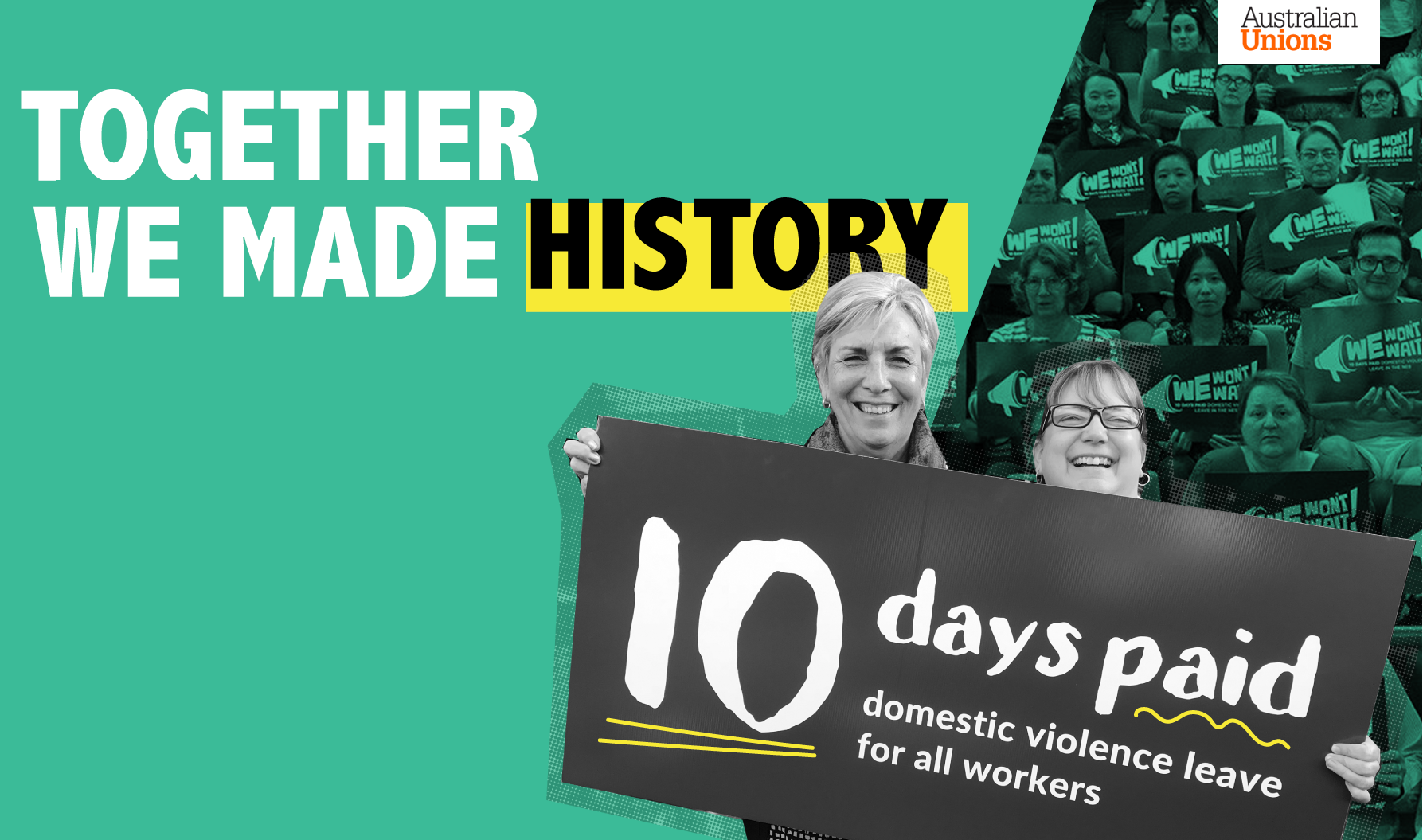All workers will have access to 10 days’ paid family and domestic violence (FDV) leave in a historic move that follows an enduring union campaign.
Unions have been campaigning for paid FDV leave for more than a decade.
That campaign has seen life-saving paid FDV leave won workplace by workplace, agreement by agreement and award by award.
Now we have secured the most enduring win of all: paid FDV leave for all workers enshrined in the National Employment Standards (NES).
With parliament passing the Albanese government’s bill to amend the NES, more than 11 million Australian workers – including casual workers – will have access to 10 days’ paid FDV leave.
The leave will be available from 1 February 2023 (and from 1 July 2023 in small businesses).
Leave will save lives
The Australian Council of Trade Unions (ACTU) said FDV leave will save lives.
“On average, it costs $18,000 to escape a violent relationship in Australia and economic security is a key factor determining whether a person can escape a dangerous relationship,” the ACTU said.
ACTU President Michele O’Neil paid tribute to union members who campaigned tirelessly to see universal paid FDV leave become a reality.
“No worker should ever have had to choose between putting food on the table and their safety, and economic security is a key factor determining whether a person subjected to violence at home can escape a dangerous relationship or not.
“It cannot be understated just how important winning paid [FDV] leave in the National Employment Standards is.”
Michele also noted the passing of FDV leave into law has come too late for many.
“We remember all the women taken too soon and share the grief of the families still mourning,” Michele said.
“With 1 in 4 women having experienced some form of violence since the age of 15 by an intimate partner, Australia has a critical problem with women’s safety and gender equality.
“While today is a huge and historic win, union campaigning for gender equity does not stop here,” she said.
Agreements paved the way
IEU-QNT Assistant Secretary Nicole Kapernick said many collective agreements negotiated by IEU members in the past decade contained paid FDV leave – and helped pave the way for this historic moment.
“As a union with a majority of women members, our union has a strong legacy of supporting working women including by securing paid FDV leave,” she said.
“Our union first won paid FDV leave in Queensland Catholic schools in 2012 and secured access in other sectors and single site schools until it became a benchmark provision in our sector.”
Nicole said each and every IEU member is part of this historic win.
“There is no doubt the momentum created by unions in securing FDV leave in collective agreements made a strong case for including it in the NES.
“IEU members should be very proud of their role in winning FDV leave for all workers.
“While there is a long way to go to ensure the safety of Australian women, enshrining paid workplace support for any person experiencing FDV is a significant and irrevocable step forward,” she said.



